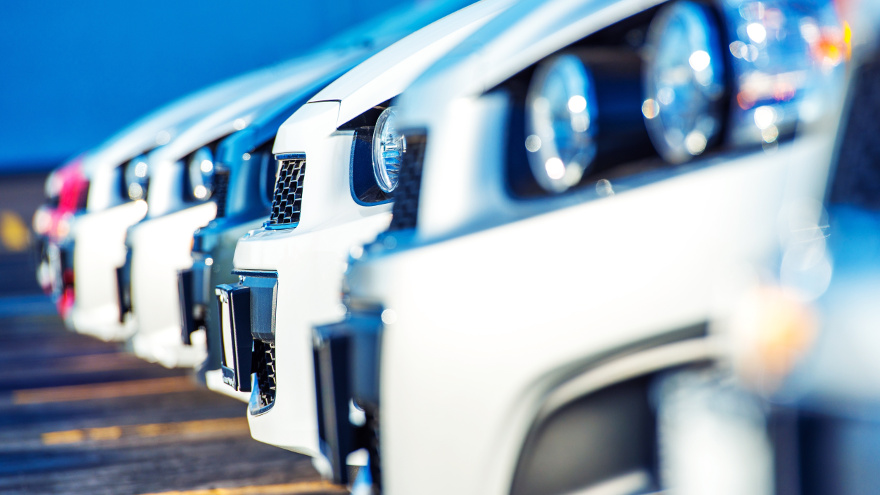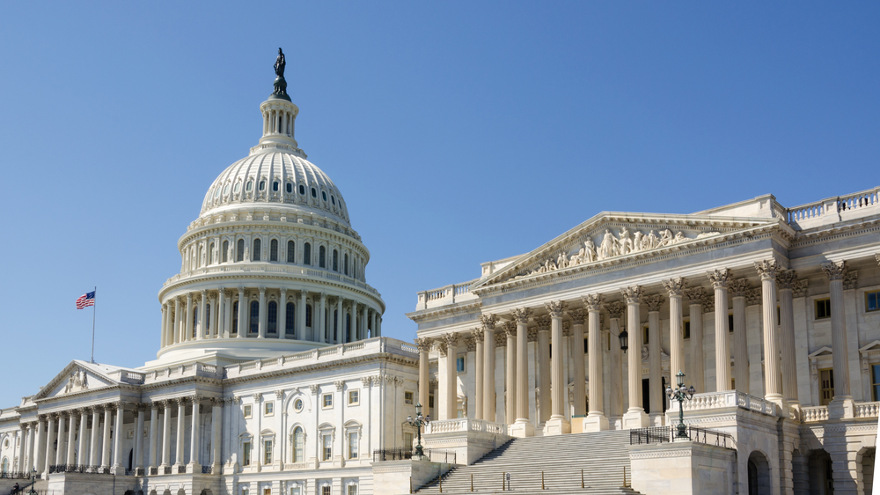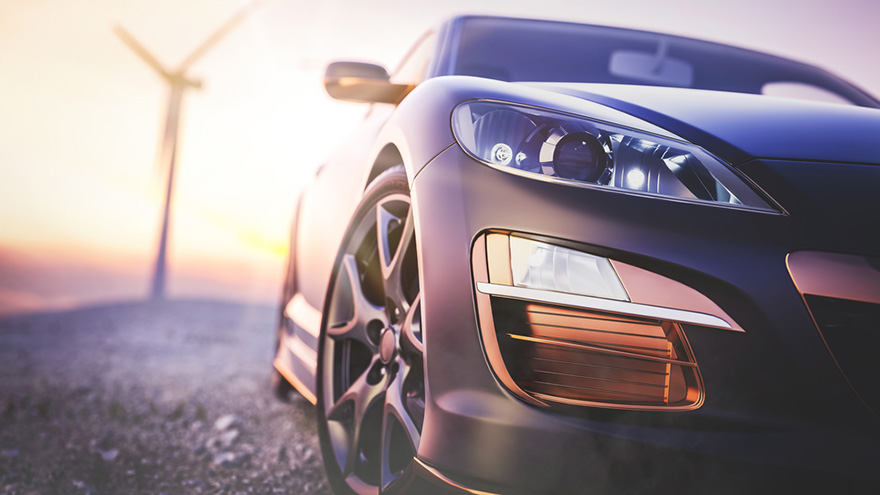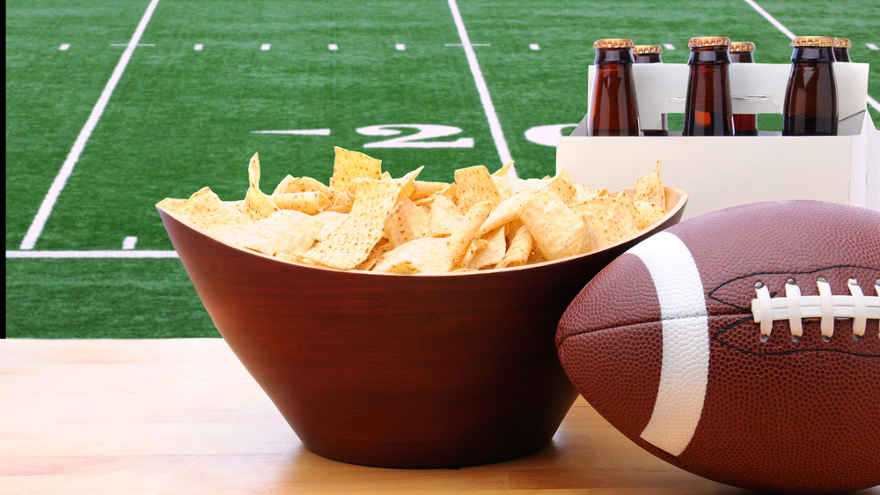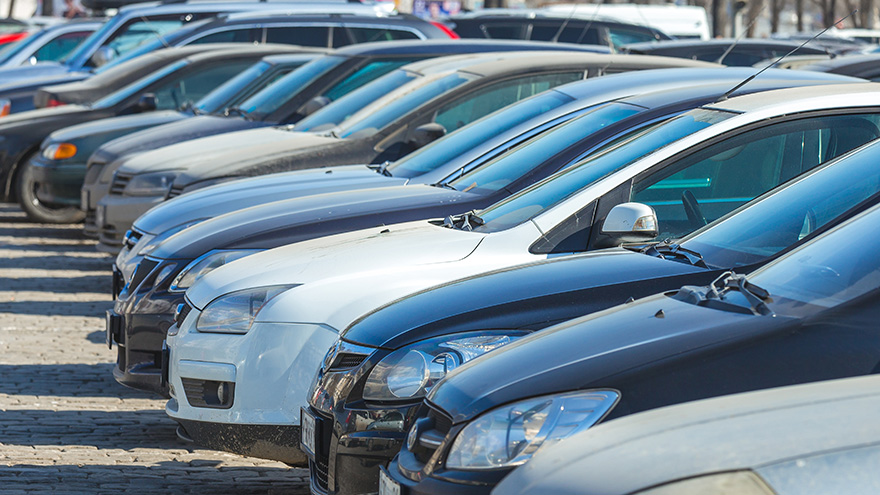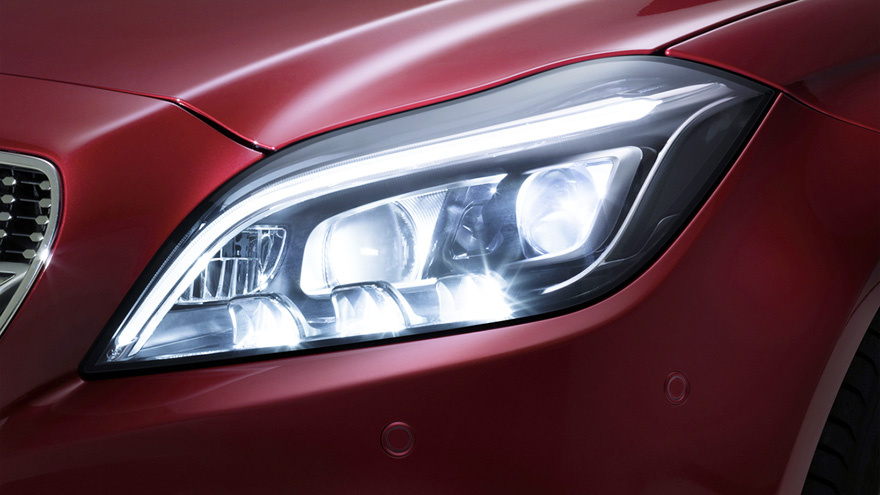Across the United States, the number of operating automotive dealerships remained steady in 2017.
That's according to the latest Automotive Franchise Activity Report from Urban Science released Tuesday.
There were a total of 18,213 dealerships rooftops as of Jan. 1 — a 0.2-percent increase from a total of 18,170 on Jan. 1, 2017, according to the report.
The sales throughput for last year was 947 per dealership, which is down 18 units from 2016 levels, said Urban Science's global director of data Mitchell Phillips in a news release.
“With the stable dealership count trend as we have seen for the past several years and an industry forecast that is slightly declining from 2017, we expect the sales throughput to decline in 2018,” Phillips explained.
“Over the last seven years, the dealership network has set a new normal pattern of stability. The data shows that 97 percent of local markets had virtually no net change (+/- 1 dealership),” he said.
The number of dealerships increased most significantly in Texas, Florida, Pennsylvania, Mississippi, Missouri and New York, according to Phillips.
Below is a list of the top six states to add the most dealerships since last year, along with the number of new dealerships in each state:
- Texas, 15 dealerships
- Florida, 11 dealerships
- Pennsylvania, 10 dealerships
- Mississippi, five dealerships
- Missouri, five dealerships
- New York, five dealerships
In addition to automotive manufacturers Urban Science' data sources also include feeds from phone and field verification.
Urban Science has been collecting information for its Automotive Franchise Activity Report since 1990.
Dealers and lawmakers recently found another way to gather in the shadow of Capitol Hill.
Events DC, the official convention and sports authority for the District of Columbia and the Washington Area New Automobile Dealers Association (WANADA) welcomed the U.S. Senate Committee on Commerce, Science and Transportation along with the Committee on Energy and Natural Resources during the 2018 Washington Auto Show at the Walter E. Washington Convention Center.
On Jan. 24, the committee hearings met inside the convention center to discuss automotive innovation and energy technologies, and it was the first field hearing held within the District of Columbia.
“Washington, D.C. has been actively engaged in exploring transportation, automotive and energy technology, such as autonomous vehicles for instance, as a critical part of planning for future population growth and accommodating a record number of visitors to our city,” said deputy mayor of planning and economic Brian Kenner.
“Field hearings, like this — and its outcomes — are vital to the future growth of environmental innovation and planning within the D.C. region’s auto industry,” Kenner continued.
During the Washington Auto Show, the U.S. Senate Committee on Commerce, Science and Transportation, led by South Dakota Sen. John Thune, discussed the development of autonomous technologies in the automobile industry.
The hearing, titled “Driving Automotive Innovation and Federal Policies,” examined the need to develop a regulatory framework that would support the research and development of new innovations for the driverless vehicle industry.
Officials believe vehicles are paving the way for innovation as self-driving cars are confronting industry needs for enhanced safety, reliability, advanced technology and additional accessibility opportunities.
“With Washington, D.C. thriving as the ‘Capital of Inclusive Innovation,’ Events DC remains focused on elevating the client and attendee experience through collaborative efforts, like this, on future-forward initiatives that benefit the District of Columbia and its growing technology sector,” said Greg O’Dell, president and chief operating officer of Events DC.
“The Walter E. Washington Convention Center has been the long-standing home for the Washington Auto Show, and it continues to be an honor to work in partnership with WANADA to host such revolutionary hearings that are defining the evolution of the automotive industry and the future of the Washington Auto Show,” O’Dell continued.
The second hearing on Jan. 25, “The Road to Tomorrow: Energy Innovation in Automotive Technologies,” was held by the United States Senate Committee on Energy and Natural Resources and led by Sen. Lisa Murkowski of Alaska. It focused on the current state of integrating energy and natural resources into the automotive landscape through reducing the carbon footprint of vehicles and increasing the efficiency through growing technologies.
“As WANADA celebrates 101 years supporting the auto industry in the Washington region, it was an honor to work with the United States Senate and the Walter E. Washington Convention Center to bring the first field hearings to the District of Columbia,” said John O’Donnell, president and chief executive officer of the Washington Area New Automobile Dealers Association.
“The growing auto industry continues to deliver new and exciting advancements to consumers and with these hearings the United States is able to remain a global leader for automotive technology of tomorrow,” O’Donnell went on to say.
Each year the Washington Auto Show fills all five exhibit halls, plus the ballroom within Convention Center. The show highlights all aspects of the automobile industry from luxury and exotic cars, to interactive driving experiences, car-themed paraphernalia, the Mobility Talks International government forum to the Art-of-Motion exhibit featuring artist-decorated vehicles and a kid zone with entertainment for guests of all ages.
AutoNation opened three standalone used-car stores in 2017, rolled out its fourth in January and has plans to open its fifth AutoNation USA location — this time in Las Vegas — by the end of this quarter.
What’s more, the retailer is making additions on the wholesale side of pre-owned, too, with plans to open an AutoNation Auto Auction in Atlanta by the end of the quarter, the fourth auction facility for the dealership group.
This used-car momentum discussed by AutoNation management during its latest earnings call comes on the heels of what was a strong fourth quarter in pre-owned.
Total used-vehicle retail revenue was up 2.4 percent in the fourth quarter at $1.14 billion, with retail used gross profits up 7.7 percent at $75.2 million. AutoNation retailed 55,944 used cars during the quarter, up 1.3 percent from Q4 of 2016.
Wholesale revenue, however, was down 34.4 percent at $69.7 million, but gross profits there climbed to $2.8 million, up from a loss of $4.4 million a year earlier.
During the Q&A portion of the call with analysts, AutoNation chief executive Mike Jackson was asked about AutoNation’s used-to-new retail sales ratio – estimated by the questioner to have softened year-over-year to 0.6-to-1— and whether the retailer could pivot to used to counterbalance what could be slower new-car sales for the industry.
“In pre-owned, you know, I’ll take a quarter like this the rest of my career, but I don’t think I’m going to get it,” Jackson said. “We had an increase in gross profit all-in in our pre-owned business, same-store sales, of 16 percent. Now every quarter is going to be a little different where you find the optimal line between margin and volume. Also we were much more effective in … our wholesale operations.
“Very good operational execution, combined with finding the optimal line between volume and profits, led to an outstanding result. I think over time, you’ll see our pre-owned business is growing faster than our new business, but in this particular quarter it went the other way, but the results all in are outstanding and I wouldn’t change a thing,” he said.
One thing that is changing, both at AutoNation and industrywide, are the growing presence of standalone pre-owned outlets.
Chief financial officer Cheryl Miller said it’s still too early to gauge the success of AutoNation USA, quite yet.
“We’re really talking about four or five stores at this point. (It’s) challenging to compare the early results, because two of those stores were in Texas. And so when you look at the impact of the hurricanes in Corpus and Houston, certainly you can’t extrapolate those trends from the early results. But stay tuned there,” Miller said. “But I’d say from a materiality standpoint, currently the AN USA stores are not material to the overall volume.”
However, one area of the AutoNation USA business that is already starting to show some positive results is the customer-pay service initiative.
Scott Arnold, who is AutoNation’s executive vice president of customer care and brand extensions, said: “We are starting to see customer-pay traffic come into the store. We’re seeing that coming off of the used cars that are being sold.
“We offer a maintenance program at no cost to the consumer when they purchase a vehicle. And so that customer is now starting to come back in to the earlier USA stores and showing up as a customer-pay customer,” he said. “So, yes, we are starting to see the traffic build. It will build slowly at first, but consistently and continue to move up.”
Penske Automotive Group will expand its standalone, used-vehicle supercenter footprint with three new used-car stores in the U.S., said chief executive Roger Penske.
The company will open the greenfield sites under its U.S. brand, CarSense, which operates five used-car supercenter locations in Pennsylvania and New Jersey.
The first new location will be in Phoenix and is to open in about six months, followed by locations in the New Jersey and Pennsylvania areas. All three locations will be up and running within “12 to 18 months,” Penske said.
Penske Automotive expects its standalone used-vehicle superstore operations, which also includes locations in the U.K., to sell approximately 70,000 used cars and trucks and generate over $1 billion this year.
“We believe these used-vehicle dealerships further diversify PAG’s business and provide an opportunity to capitalize on the highly fragmented used-vehicle marketplace,” Penske said during the company’s conference call on Thursday outlining its quarterly and annual financial results.
“In the fourth quarter, these businesses retailed 9,500 units, generated $176 million in revenue and $29 million in gross profit.”
Penske Automotive acquired CarSense in January 2017. It also purchased CarShop, which operates five used-car locations in U.K., in 2017. In January, it closed the deal on The Car People, which operates four used-car locations, also in the U.K.
Penske Automotive’s adjusted income from continuing operations in its fourth quarter that ended Dec. 31 included a $243.4 million benefit from changes in the U.S. federal tax law.
Excluding the tax benefit, Penske Automotive’s income in the quarter rose 11.9 percent to $86.6 million and was up 9.2 percent to $370.1 million for the year.
Penske Automotive’s revenue in the quarter increased 10.4 percent to $5.4 billion and its revenue for the 12-month period ending Dec. 31 increased 6.3 percent to $21.4 billion.
Penske Automotive operates automotive and commercial truck dealerships principally in the U.S., Canada and Western Europe.
The Appraisal Lane announced Thursday that it has expanded into Texas to meet increased dealer demand.
Dealers in the Lone Star State can join the company’s buyer network encompassing 26 states that enables dealers to buy in-demand inventory virtually — both inside and outside of their market area.
This expansion follows the company's announcement in December that in just a little over two years, it surpassed $100 million in used-car transactions for both live trades and aged units.
Last year, The Appraisal Lane processed more than 60,000 vehicles for cash offers in its community, according to the company.
“We continue our strategic and methodical expansion westward to meet ever-increasing dealer demand for our community and the benefits it brings,” The Appraisal Lane co-founder and president Andrew Iorgulescu said in a news release. “The dealers in our community are seeing increased incremental sales while mitigating exposure to wholesale loss.
“Additionally, with The Appraisal Lane, transparency and a responsive process provide a better customer experience. We're pleased to bring this platform to dealers in the competitive Texas automotive marketplace."
The Appraisal Lane is available across the entire Eastern Seaboard, Pennsylvania, Ohio, Illinois, Michigan, Indiana, Wisconsin, Minnesota and Texas.
Carvoy announced Thursday the launch of Carvoy Ignite, an end-to-end e-commerce SaaS platform designed to convert auto dealers’ websites into an online marketplace.
The digital platform is available to dealerships nationwide and easily integrates with dealers’ pre-existing systems, the company said.
The automotive-tech startup, Carvoy, the parent company of Carvoy Ignite, provides a transparent online solution to new-car leasing and user-dealer connectivity. Its technology allows users to start and finish the entire leasing process from their desktop.
Carvoy has partnered with over 300 dealerships on the East Coast, according to the company.
The company said it launched Carvoy Ignite to continue creating synergies for dealerships.
Carvoy Ignite can increase the amount of dealerships’ sales transactions because it gives consumers access to inventory after hours and cuts down on the time it takes to get a lease done, according to Carvoy.
In addition to allowing dealerships to create customizable online showrooms, Carvoy Ignite provides dealers with real-time analytics of all transactions to both access granular buyer behavior and guide pricing via its digital dashboard.
“For most, the car buying experience is associated with time-consuming negotiations and reviewing extensive paperwork. Carvoy Ignite gives consumers an experience they can be excited about while simultaneously increasing profits for dealers,” Carvoy Ignite chief executive officer and co-founder Daniel Yuabov said in a news release. “Carvoy Ignite was born out of a deep understanding of the issues that exist within the automotive industry.
“Supplying dealerships with the tools they need to be able to address the customer demand for a more simplified, efficient and user-friendly car buying process,” Yuabov continued.
The Carvoy Ignite dashboard includes trackable inventory, automated desking, finance and insurance (F&I) package options, trade-in options and customer credit approval.
During transactions, the F&I department will receive digitized deals that Carvoy Ignite pushes directly into their financing software with pre-selected add-ons.
Whether on the showroom floor or in the F&I office, Carvoy Ignite also provides dealerships access to text-enabled customer follow-ups and links for in-store personnel.
Carvoy said the technology allows salespeople to operate more effectively because they can manage all transactions transparently from a mobile device.
“In today’s world, every industry is shifting their inventory to online marketplaces and I always worried it wouldn’t be a fit,” Smithtown Toyota director of business development Steve Gaynor explained in the news release. “After learning about Carvoy Ignite, I realized this will not only provide my customers with the online experience they are looking for when leasing a car, but it will help my colleagues when they are providing consumers with the exact car that they want.”
Updated to clarify details of Carvoy platform.
The chicken wings and guacamole from Super Bowl parties are long gone, but what about dealerships seeing a meaningful lift in shopper activity stemming from the television advertising bought by automakers during the game?
If past trends are any indication, the store phones should have been busier than drink and food stations at those Big Game shindigs. Based off of its own internal call data from 2015, 2016 and 2017, CallRail found that on average inbound calls to dealerships increase 513 percent the day after the Super Bowl.
No doubt, dealerships hope those calls are to inquire about their current inventory, not about the future of Tom Brady and the New England Patriots. A wide array of industry observers crunched data as the Philadelphia Eagles went on to their first Super Bowl championship in order to determine which OEMs tasted a victory with their advertising efforts.
“As is the case with previous Super Bowls, the automotive industry was well-represented before, during, and after the game Sunday evening,” said Libby Murad-Patel, vice president marketing and strategic insights for Jumpstart Automotive Media.
“This year’s ad spots had a mix of brand alignments, emotion, nostalgia, and entertainment, but the brands that saw the most success were those that really showcased the vehicle’s performance,” Murad-Patel continued. “They did a fantastic job driving increased shopper interest among both in-market shoppers and car enthusiasts alike.”
Edmunds analysts tracked traffic to brand and model pages on both its desktop and mobile sites during the game to see which automotive ads were most successful in driving immediate shopper interest. Percentage lifts are compared to average Sunday traffic levels on Edmunds.
The ad for the Lexus LS proved most successful on the model side, with traffic up 1,080 percent to its pages on Edmunds during the game. Traffic to the Kia Stinger rose 1,052 percent during the game, and traffic to the Jeep Wrangler was up 93 percent.
Interest in these models drove these three automakers to victory on the brand side: Kia piqued the most curiosity, with traffic up 94 percent during the course of the game; Lexus was second at 43 percent; and Jeep was third with a 21-percent traffic lift.
“Blockbuster movie and celebrity tie-ins were a recipe for success in standing out from the competition and generating interest among car shoppers during the big game,” said Jessica Caldwell, executive director of industry analysis at Edmunds. “When the audience is tuning in for the biggest sporting spectacle of the year, it makes sense that the most action-packed and over-the-top advertisements would generate the most immediate results.”
Edmunds noticed results were a bit more muted for the Ram brand, which aired two spots promoting the new 1500. While cumulative shopper interest during the entire game for both the Ram brand and the 1500 were nominal, both ads did generate significant spikes in interest immediately after the ads ran. In particular, the Ram ad that featured a speech from Martin Luther King Jr. generated a 91-percent lift in shopper interest in Ram and a 148-percent lift in model traffic for the 1500 during the second quarter of the game.
“Regardless of where consumers stand on the Ram commercial controversy, the automaker did succeed in grabbing the attention of car shoppers — albeit for a brief period of time,” Caldwell said.
The analyst team at Cars.com noticed how Kia’s campaign worked nicely to drive activity on that site, too.
Within eight minutes of airing the Red Stinger featured in the Kia spot, visits to the advertised model’s page on Cars.com saw a 4,053-percent increase in comparison to the same time period prior to the airing of the spot.
The Lexus LS pages saw an overall spike in traffic, too — generating a 921 percent lift of visits. Other top performing brands and car models included: Jeep Wrangler with a 542-percent increase, Jeep Cherokee with a 175-percent increase, Toyota Tundra with a 142-percent increase, and RAM 1500 with a 69-percent increase.
As people tuned in all across the country, some of the top vehicles that caught consumers’ eyes in major cities based on Cars.com visits included:
— New York: Jeep Wrangler
— Los Angeles: Jeep Wrangler
— Chicago: Jeep Wrangler
— Philadelphia: Jeep Wrangler
— Dallas: Ford F-150
— San Francisco: Jeep Wrangler
— Washington, D.C.: Jeep Wrangler
— Houston: Ford F-150
— Boston: Jeep Wrangler
— Atlanta: Jeep Wrangler
“This year’s game saw the fewest number of car manufacturers advertising since before 2010. Despite this, Cars.com still saw a significant spike in site engagement during the game,” said David Greene, Cars.com data strategy manager.
“The themes of diversity and humanity were pervasive in all of the ads that aired, with only two ads overall featuring famous figures. Humor and animals were most notably missing from ads this year,” Greene continued.
Black Book continues to see sprouts of the spring selling season germinate.
On this heels of updating its Used Vehicle Retention Index for January, this week’s Black Book Market Insights report showed some possible early signs of the spring selling season, with cars showing lower depreciation than trucks.
“It was a good week for mainstream car segments as tax season buying has begun with strong sales being reported at the auctions,” said Anil Goyal, executive vice president of operations at Black Book.
Volume-weighted, editors indicated that overall car segment values declined by 0.34 percent last week. In comparison, the market values for cars had decreased on average by 0.64 percent per week in the previous four weeks.
Among cars, Black Book noticed midsize car segment performed the best with values remaining nearly flat.
Again volume-weighted, editors determined overall truck segment values — including pickups, SUVs and vans — decreased by 0.50 percent last week, same as the average decrease of 0.50 percent per week in the previous four weeks.
Within the truck space, Black Book mentioned the full-size crossover/SUV segment performed the worst with values declining by 1.13 percent last week.
As Goyal referenced, dealers are starting to see retail activity improve, resulting in the need to go to the wholesale market to acquire necessary inventory.
In Indiana, Black Book’s lane watcher reported, “Higher quality vehicles continue to do well in all price ranges. Retail in our area has picked up a bit, which bodes well for a market climb.”
Another report out of the Midwest included similar themes as a Black Book representative shared, “The market is starting to make a positive move a little bit earlier than normal and should remain strong for quite a while.”
And in Pennsylvania, dealer also are seeing vehicles roll over the curb. Black Book’s auction attendee mentioned, “Several dealers indicated that business picked up last week, and judging by the quantity of buyers in the lanes and online this week I would have to agree.”
Moving to the South, Black Book’s other two reports from the lanes share more details about the approach of spring-market conditions.
From Florida: “Dealers were more aggressively trying to purchase inventory, but they were careful not to overpay.”
From Georgia: “We had a good sale today with a lot of activity in the lanes. Vehicles under around $12,000 were in the highest demand.”
Update on the specialty markets
As they do on a monthly basis, Black Book editors shared their assessment of the specialty markets. Here is the latest rundown:
—Collectible Cars: Black Book emphasized that January is considered a bellwether month for the collectible car industry, and “this year did not disappoint.”
Editors added, “Mecum got the ball rolling with nearly $100 million in total sales in Kissimmee, and the usual Arizona players kicked in nearly $250 million more.”
—Recreational Vehicles: Black Book reported RV values at auction, both motorized and towable, were stable last month, with changes of less than 2 percent.
—Powersports: Editors explained February brings a “mixed bag” to values in the powersports market.
After last month’s above average market performance for this time of year, Black Book noted only the cruiser and snowmobile segments exhibit gains for a second consecutive month.
—Heavy Duty: Editors mentioned the word in January that there was a shortage of trucks available to haul freight apparently caused an already volatile value trend to take an upward swing resulting in strong wholesale values.
—Medium Duty: Overall, Black Book noted the medium duty market stabilized during the last couple of months of 2017, and that trend continues for the first part of 2018.
DealersLink, a provider of automotive systems integration and networking technology, announced that it has recently expanded its geographic reach after signing more than 100 new dealer members recently in Arkansas, Mississippi, Alabama, Georgia and Florida.
Among the new clients are the following dealerships:
—Susan Schein Automotive, Pelham, Ala.
—Greg Orr Cadillac, Hot Springs, Ark.
—Ross Ford Toyota, Wynne, Ark.
—Rhodes Chevrolet, Van Buren, Ark.
—Steve Jones Chrysler Dodge Jeep, Wynne, Ark.
DealersLink created the concept of a dealer-to-dealer vehicle marketplace in the United States, wherein its members pay only a monthly fee and never any per-unit buy or sell fees. The company also offers dealership tools such as a mobile VIN scanner, retail analytics, new-car pricing tool with OEM incentives, live market pricing, inventory management and photo management.
Last year, DealersLink estimated it saved its customers more than $21 million collectively, including $8.8 million in auction fees, $7.6 million in reconditioning costs , and $5 million in lot-ready-time expenses.
From its base near Denver, the company has continued its expansion into the West Coast, Midwest and Southwest regions, and this development represents the latest step in an eventual nationwide rollout of DealersLink services.
“The South is a great market for used vehicles, and we are extremely pleased that dealers in this region will soon be realizing substantial savings from using our Marketplace and services,” DealersLink chief executive officer Mike Goicoechea said. “The fact that our company was founded by and for auto dealership veterans also seems to resonate with many of our new clients.
GPS solutions provider Ituran USA has become a bronze-level National Corporate Partner, the National Independent Automobile Dealers Association announced Friday.
Ituran is a long-term partner that began supporting NIADA shortly after launching services in the U.S., according to the company.
"Ituran is a global leader in the vehicle GPS tracking industry and an innovative technology developer of BHPH operator asset protection/risk mitigation solutions," NIADA senior vice president of member services Scott Lilja said in a news release. "Its solutions for the BHPH space help ensure our members' ability to track and secure their hard-earned assets in a cost-effective, efficient and effective way."
NIADA said that Itura recently introduced software integrations designed to increase productivity for collectors and managers with several national DMS providers.
"Earning recognition as an NIADA National Corporate Partner adds to our portfolio of national and state trade organizations we support through memberships and sponsorships," Ituran chief executive Ariad Sommer said. "We are extremely pleased that after careful scrutiny, NIADA found Ituran places a high value on helping automotive financiers mitigate risk and operate efficient, profitable businesses. It's a value we share closely with NIADA."
Ituran is currently offering free YETI gifts to some NIADA members who sign up for its products and services.
Members are eligible for a YETI cup with orders of at least 25 units; a YETI cup and hat with orders of at least 50 units; and a free YETI cooler with orders of 100 units or more, according to NIADA.

